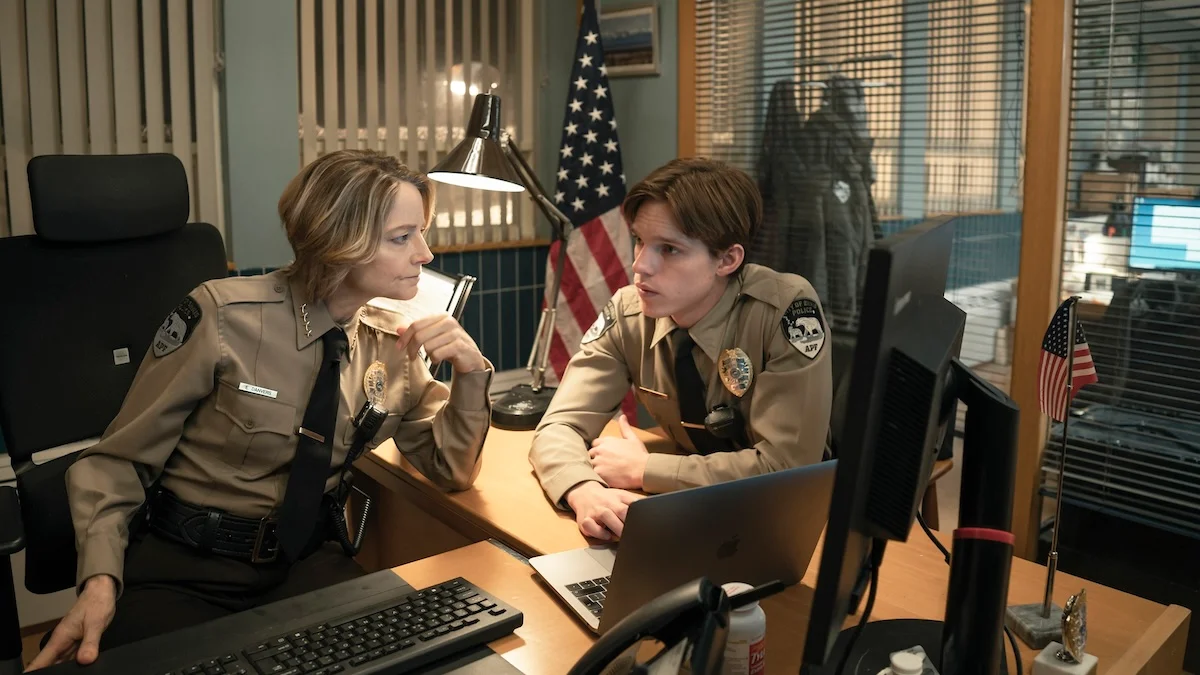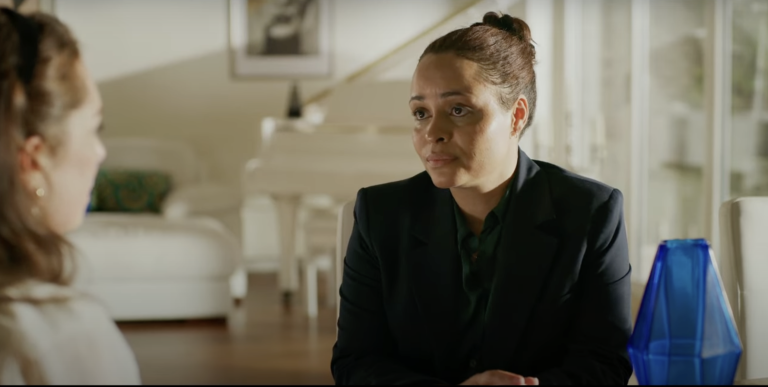The legacy of True Detective looms large to this day, as the shadow of its influence can be traced back to its original season, in all its profound philosophical layers and cosmic horror glory. Since then, the inimitable aura of the horrifying Tuttle case, combined with the intricately convoluted dynamic between the show’s two leads, has evolved into phantoms of a past that one can never be caught up to. Enter True Detective: Night Country, the franchise’s fourth and latest season, which plunges us into the cold, unforgivable fictional mining town of Ennis, situated in North Alaska, which conjures up a mystery so brutally mistifying that it comes very, very close to the Tuttle fiasco.
While the telltale aspects of gritty crime procedural and tense murder mystery are naturally expected of a show meant to carry the True Detective legacy, director Issa López crafts Night Country with uncompromising depth about chilling secrets that threaten to crack through the ice, leaving a small, already-fractured community in shambles.
Jodie Foster’s return to television is reason enough for engaging with Night Country without any shallow pretense. As she slips into the shoes of the deliberately unlikeable, curt, no-nonsense Liz Danvers — who approaches her relationships with the same bitter rationality that she does her cases — there’s barely any room for doubt that this is a show meant to underline the hardened complexities that shape how someone chooses to live in their own skin. Although seeing Foster poring over case files and engaging in short bursts of police action naturally evokes parallels to her Clarice Starling in Silence of the Lambs, Liz is much more jaded, blunt, and tough than the smart, polite FBI newbie who engaged in vulnerable quid pro quo with a seasoned killer.
Then there is Kali Reis’ trooper Evangeline Navarro, who is unflinchingly determined and impulsive when it comes to imparting justice in cases that are especially horrifying to women, beaten, abused, and tortured by men who channel their miserable insecurities into unforgivable crimes. While Liz and Navarro do not exactly see eye to eye due to the clash of their hardened, dynamic personalities and a conjoined past that hints that some secrets are best left buried, the two must join forces when a group of Arctic researchers go missing on the last sunset of the year. As the relentless cold and darkness begin quite literally, Night Country adorns a chilling tint that does not thaw out right until the end, where every person in Ennis is forced to reckon with the ghosts of a past that remains unresolved and macabre in just the right ways.

Night Country comes alive in Lopez’s capable hands and weaves a haunting story about the murder of a Native woman that casts an inescapable shadow over Ennis, as the victim’s severed tongue is found in the premises of the Arctic research base that is the nexus of Liz’s present case. While the new series offers plenty of fresh flourishes, both stylistic and emotional, to set it apart from its predecessors, it wears its legacy candidly on its sleeve. Right from its central dynamic entrenched in bad blood and complex secrets, it references the controversial spiral that was heavily featured in the first season and its labyrinthine mystery that feels more surreal as time passes. There are sprinkles of the supernatural embedded in organic ways, spilling over into the sordid reality of inhabiting a place characterized by endless nights deprived of the warm glow of the sun.
There’s an aspect of raw, messy emotionality in Night Country — messy in a way that can be only deemed truly human — rooted in blinding anger over the mounting injustices that cripple the town, literally poisoning the local water and claiming innocent lives within the indigenous community of Iñupiat Alaskans. As Liz navigates these tense waters, it is repeatedly established that she is intensely unlikeable, the subject of scorned glances by guarded wives whose husbands she had affairs with or locals who simply dislike her for her bullheaded focus on getting things done with startling sardonicism. She also messes up, big time, indulging in reckless behavior to contend with the cold gripping her heart, but she is undoubtedly perfect to take on such a brutal case that demands an unapologetic brand of obstinacy that often borders on cruelty.
While Foster is expectedly compelling as Liz, whom she portrays as insanely flawed yet never irredeemable, it is Reis who is the true shining jewel of Night Country, imbuing Navarro with a quiet resilience that feels both vulnerable and commanding. It is Navarro who ends up guiding Liz through the correct mazes within the labyrinth, shining a light on facets that the latter is too stubborn to see or acknowledge, and the two women embark on a journey that is relentless and exhilarating. The rest of the cast shines, too, adding the perfect amount of dramatic conflict that deepens the hold of the darkness engulfing Ennis, which feels like a town stretched too thin by time, harboring something in the ice that is too primordial for our comprehension.
True Detective: Night Country drills home the fact that you need to finish what you’ve started and decidedly close some doors to the past while making peace with it, lest it awakens something deep within and hounds you through the dark. Comeuppance is never escapable, as the snow will always thaw, and the winter sun will eventually shine after the long, dark nights. The silver lining towards the end is a cautiously hopeful one, acutely aware that the darkness still lingers. Until the dark takes us again, the fleeting warmth of the dazzling sun is worth holding on to.



![#Homecoming [2022] SonyLIV Review: A Generic Reunion Drama elevated by Impressive Self-awareness and Nostalgia](https://79468c92.delivery.rocketcdn.me/wp-content/uploads/2022/02/Homecoming-2022-2-768x512.jpg)



